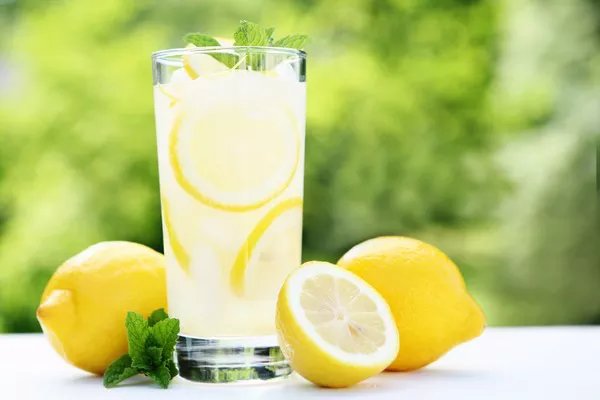Kidney stones are a common urological condition that affects millions of people worldwide. These small, hard mineral deposits can cause severe pain and discomfort, often requiring medical intervention for their removal. While there are various treatment options available, such as medication or surgery, a natural approach using lemonade has gained popularity in recent years. This article aims to explore the reasons why lemonade is believed to be beneficial for kidney stones and provides insights into its potential mechanisms of action.
Understanding Kidney Stones:
Before discussing the benefits of lemonade, it is crucial to understand kidney stones. Kidney stones are formed when certain substances, including calcium, oxalate, and uric acid, become concentrated in urine and crystallize. These crystals can grow in size over time, leading to the formation of solid stones. The symptoms of kidney stones may include intense pain in the back or side, blood in the urine, and frequent urination.
Lemonade and Kidney Stones:
Lemonade, especially homemade lemonade, has long been touted as a potential remedy for preventing and treating kidney stones. Several factors contribute to the belief that lemonade can have a positive impact on kidney stone formation.
1. Citrate Content:
Lemons are rich in citric acid, a natural compound that helps inhibit the formation of certain types of kidney stones. Citrate acts by binding to calcium in the urine, preventing it from combining with other substances to form crystals. By increasing urinary citrate levels, lemonade may reduce the risk of calcium-based stone formation.
2. Urine Alkalization:
The acidic nature of lemonade may aid in alkalizing urine. Alkaline urine promotes the dissolving of uric acid stones, making them easier to pass. Additionally, alkaline urine reduces the likelihood of crystal formation and aggregation, potentially preventing the growth of existing stones.
3. Hydration:
One of the simplest yet effective ways to prevent kidney stone formation is by staying adequately hydrated. Drinking lemonade, which is a flavorful and refreshing beverage, can encourage individuals to consume more fluids. Increased fluid intake promotes urine dilution, reducing the concentration of stone-forming substances and helping flush them out of the urinary system.
4. Potential Antioxidant Effects:
Lemons are a rich source of vitamin C, a powerful antioxidant known for its potential health benefits. Antioxidants help neutralize harmful free radicals in the body, which may reduce oxidative stress and inflammation. While more research is needed, these properties of lemonade could potentially contribute to the prevention or management of kidney stones.
5. Compliance and Lifestyle Factors:
The consumption of lemonade as part of a kidney stone prevention plan can improve compliance and overall lifestyle choices. Choosing a natural remedy like lemonade over medication or invasive treatments may be more appealing to some individuals. Moreover, incorporating lemonade into a well-balanced diet that includes other stone-preventing foods, such as fruits and vegetables, can promote overall kidney health.
Preparing Lemonade for Kidney Stones:
To maximize the potential benefits of lemonade for kidney stones, it is essential to prepare it correctly. Here’s a simple recipe to make homemade lemonade:
Ingredients:
Freshly squeezed lemon juice
Water
Optional: Sweetener (such as honey or stevia) to taste
Instructions:
1. Squeeze fresh lemons to extract the juice.
2. In a pitcher, mix the lemon juice with water. The recommended ratio is generally one part lemon juice to four parts water, but individual preferences may vary.
3. Add sweetener if desired, stirring until dissolved.
4. Chill the lemonade in the refrigerator or serve over ice.
5. Enjoy in moderation as part of a balanced diet.
Conclusion:
While the benefits of lemonade for kidney stones are promising, it is important to note that lemonade alone may not be sufficient for treating all types of kidney stones. Additionally, individuals with certain medical conditions or those on specific medications should consult their healthcare provider before making any significant dietary changes.
If you are prone to kidney stones or concerned about your kidney health, it is advisable to seek medical advice for an accurate diagnosis and personalized treatment plan. A healthcare professional can provide guidance on lifestyle modifications, dietary adjustments, and any necessary medical interventions to manage or prevent kidney stones effectively. Remember, prevention and early intervention are key in maintaining optimal kidney health.

